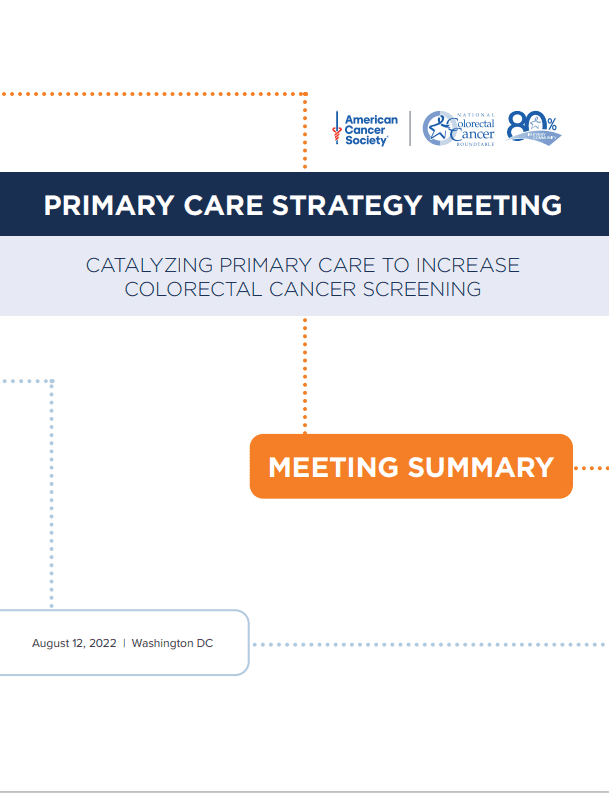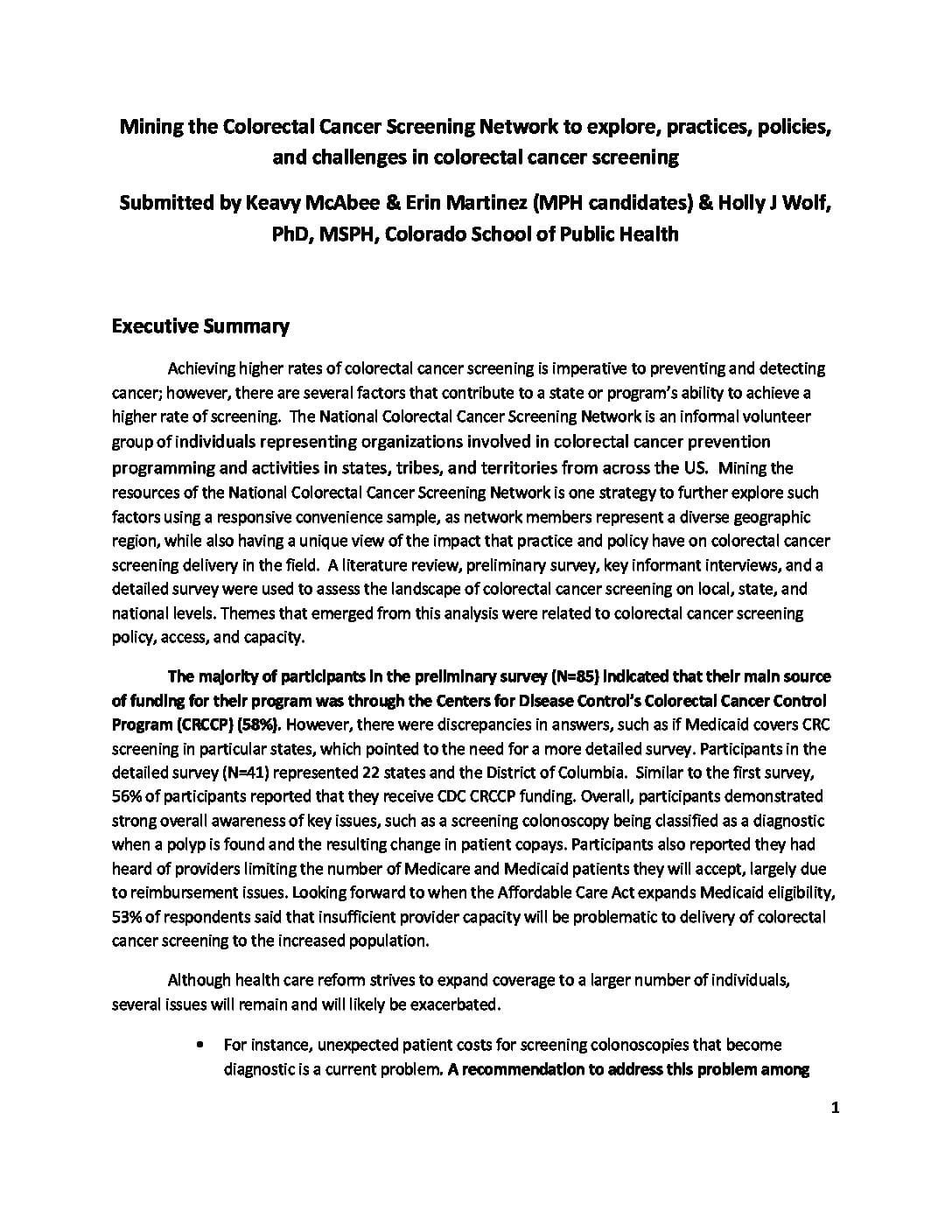Resource Type: Presentation

NEW!
Blue Star Conversation: April 15, 2025

NEW!
American Cancer Society Colorectal Cancer Resources for Patients and Clinicians

Blue Star Conversations – February 21, 2024

Meeting Summary – Primary Care Strategy Meeting: Catalyzing Primary Care to Increase Colorectal Cancer Screening

Webinar: 2022 NCCRT Steps Guide Update – July 25, 2022

Webinar: 2022 Messaging Guidebook for Black & African American People: Messages to Motivate for Colorectal Cancer Screening – June 21, 2022
